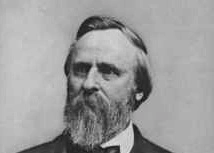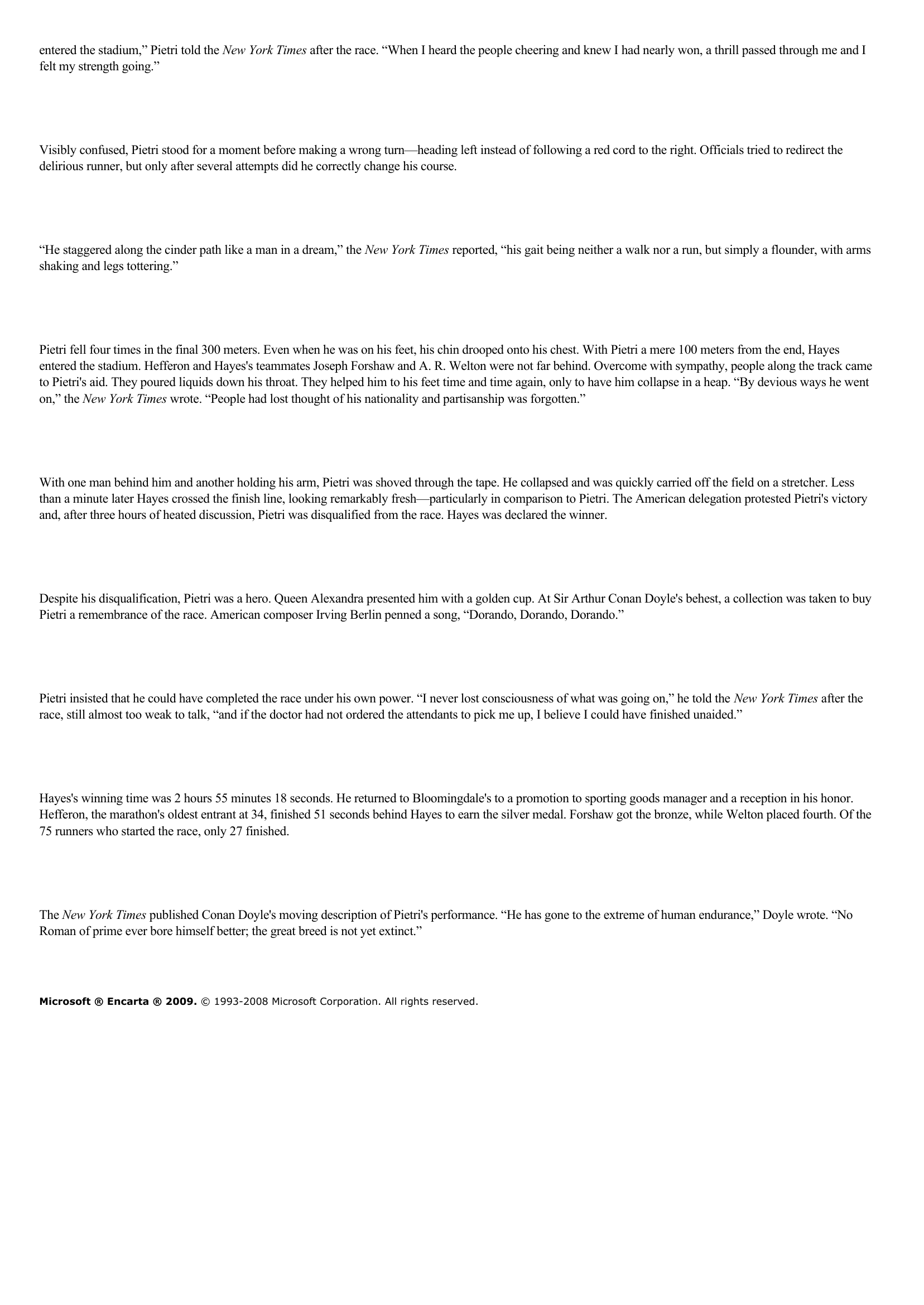Hayes Wins Olympic Marathon.
Publié le 14/05/2013

Extrait du document


«
entered the stadium,” Pietri told the New York Times after the race.
“When I heard the people cheering and knew I had nearly won, a thrill passed through me and I felt my strength going.”
Visibly confused, Pietri stood for a moment before making a wrong turn—heading left instead of following a red cord to the right.
Officials tried to redirect thedelirious runner, but only after several attempts did he correctly change his course.
“He staggered along the cinder path like a man in a dream,” the New York Times reported, “his gait being neither a walk nor a run, but simply a flounder, with arms shaking and legs tottering.”
Pietri fell four times in the final 300 meters.
Even when he was on his feet, his chin drooped onto his chest.
With Pietri a mere 100 meters from the end, Hayesentered the stadium.
Hefferon and Hayes's teammates Joseph Forshaw and A.
R.
Welton were not far behind.
Overcome with sympathy, people along the track cameto Pietri's aid.
They poured liquids down his throat.
They helped him to his feet time and time again, only to have him collapse in a heap.
“By devious ways he wenton,” the New York Times wrote.
“People had lost thought of his nationality and partisanship was forgotten.”
With one man behind him and another holding his arm, Pietri was shoved through the tape.
He collapsed and was quickly carried off the field on a stretcher.
Lessthan a minute later Hayes crossed the finish line, looking remarkably fresh—particularly in comparison to Pietri.
The American delegation protested Pietri's victoryand, after three hours of heated discussion, Pietri was disqualified from the race.
Hayes was declared the winner.
Despite his disqualification, Pietri was a hero.
Queen Alexandra presented him with a golden cup.
At Sir Arthur Conan Doyle's behest, a collection was taken to buyPietri a remembrance of the race.
American composer Irving Berlin penned a song, “Dorando, Dorando, Dorando.”
Pietri insisted that he could have completed the race under his own power.
“I never lost consciousness of what was going on,” he told the New York Times after the race, still almost too weak to talk, “and if the doctor had not ordered the attendants to pick me up, I believe I could have finished unaided.”
Hayes's winning time was 2 hours 55 minutes 18 seconds.
He returned to Bloomingdale's to a promotion to sporting goods manager and a reception in his honor.Hefferon, the marathon's oldest entrant at 34, finished 51 seconds behind Hayes to earn the silver medal.
Forshaw got the bronze, while Welton placed fourth.
Of the75 runners who started the race, only 27 finished.
The New York Times published Conan Doyle's moving description of Pietri's performance.
“He has gone to the extreme of human endurance,” Doyle wrote.
“No Roman of prime ever bore himself better; the great breed is not yet extinct.”
Microsoft ® Encarta ® 2009. © 1993-2008 Microsoft Corporation.
All rights reserved..
»
↓↓↓ APERÇU DU DOCUMENT ↓↓↓
Liens utiles
- Abebe Bikila Wins Olympic Marathon.
- Bonnie Blair Wins Six Olympic Medals.
- Ali Wins Olympic Gold Medal.
- Johnson Wins Olympic Gold.
- Raleigh ou Ralegh (sir Walter), vers 1552-1618, né à Hayes (Devon), marin et courtisan anglais.


